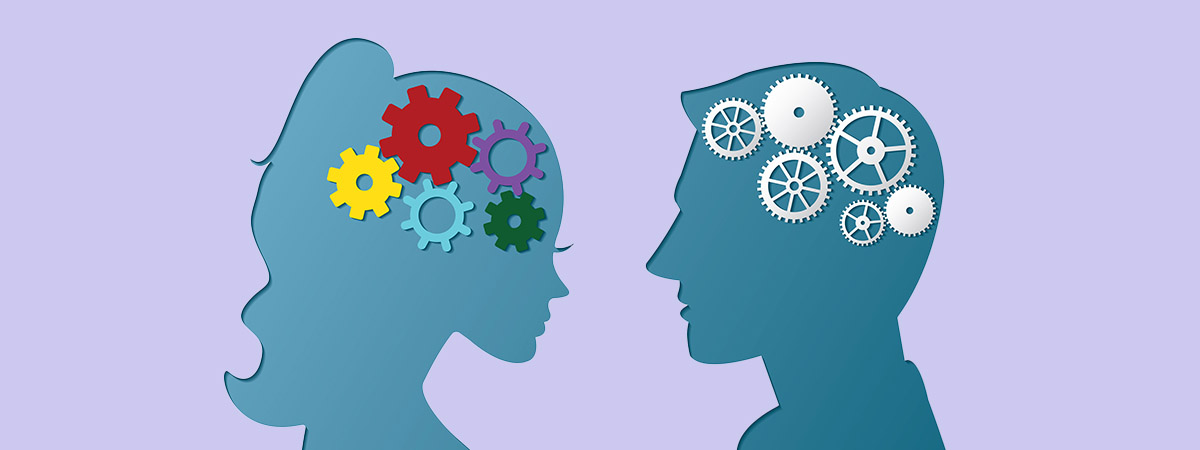
Learn About Gender Differences In Substance Use Disorders Near Toms River
All people with substance use disorders (SUDs) feel compelled to consume addictive substances like alcohol or drugs. This mental disorder affects both women and men, but are there differences in the ways the two genders endure SUDs? Current research says “Yes.”
Being aware of the gender differences in substance use disorders near Toms River can help you understand when a loved one -- woman or man -- needs addiction treatment. It also helps addiction treatment facilities, like AffinityOne Toms River, know how to treat patients. If you haven’t thought about how SUD affects men and women before, take a look at the following information.
Do Women And Men Have The Same SUD Symptoms?
Men and women generally experience the same substance use disorder symptoms. These include:
- Feeling compelled to take an addictive substance every day or multiple times a day
- Getting acute urges to consume that become more important than other needs and activities
- Needing bigger doses of a substance to get the wanted effect
- Losing control over how frequently or how much you use
- Spending in excess of what you can afford on a substance
- Putting an emphasis on getting more of a substance over other commitments
- Failing to fulfill responsibilities as a result of drug or alcohol use
- Withdrawing from people close to you and social activities so you may use
- Continuing to take the substance even if you are aware it is the source of your problems
- Engaging in risky or illegal pursuits to attain or take the substance
- Going into withdrawal if you make an effort to quit using
- You fail in any bid to stop using
But, habit-forming substances affect females more speedily, so a substance use disorder progresses in less time in women. Women, consequently, have a greater likelihood of experiencing severe symptoms before getting help.
What Are The Notable Differences In Substance Use Disorders Between Genders?
As indicated by new research about substance use, men do experience substance use disorders in a different manner than women. In general:
- Men are more apt to use illegal drugs or misuse prescribed medications.
- Women are more likely to misuse prescription opioid pain relievers, anti-anxiety drugs, and sleeping tablets.
- Men have higher rates of dependency for drugs and alcohol.
- Death rates among women with alcohol use disorders are 50 to 100 percent higher than in men.
- Men and women are similarly prone to experience a substance use disorder.
So, while men are more likely to take illicit substances, women are more likely to misuse prescriptions. This might be due to the fact that women are more likely to find treatment for pain, anxiety, and sleep disorders. And even though more men take dependency-causing alcohol and drugs overall, female biology puts women at an elevated risk for fatal diseases caused by substance use. But it’s critical to remember that everyone who ingests addiction-causing drugs or alcohol has an equal chance of encountering an SUD, and any SUD can be destructive or even fatal.
Do Men And Women Search For Addiction Treatment At The Same Rate?
One significant gender difference in substance use disorders near Toms River deals with treatment. More men seek addiction support than women. Women are often primary caregivers and may not have an individual to look after their family members if they enter treatment. They may fear losing their young ones if they divulge their addiction. Men are not as likely to have caregiving duties that prevent them from pursuing residential care services.
After they seek treatment, long-term recovery is challenging for all. However, men have a greater shot of attaining it since they are not as likely to relapse. Women relapse at greater rates since they are more likely to experience a severe substance use disorder or co-occurring disorders that inhibit recovery. They may also have trouble addiction centers that tailor treatment to their unique requirements.
None of this information should discourage anyone from getting treatment. Knowing these facts helps addiction recovery centers, family members, and society as a whole gain a better understanding how to assist those dealing with SUDs. If you need assistance recovering from substance addiction, call a local, respected treatment facility right away.
Get Treatment That Recognizes Gender And Addiction Near Toms River
Men and women have different needs during SUD treatment. AffinityOne Toms River always customizes our support to your individual requirements. If you seek a safe place to stay and work on addiction recovery, call us at (908) 883-3963 or send in the following contact form. We respond right away, night or day. Place the call now; we’re ready to help.
